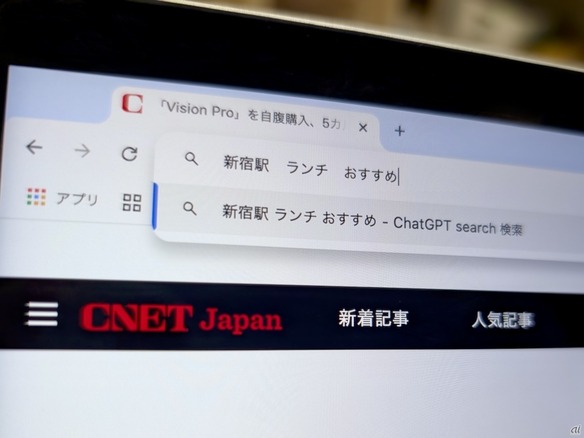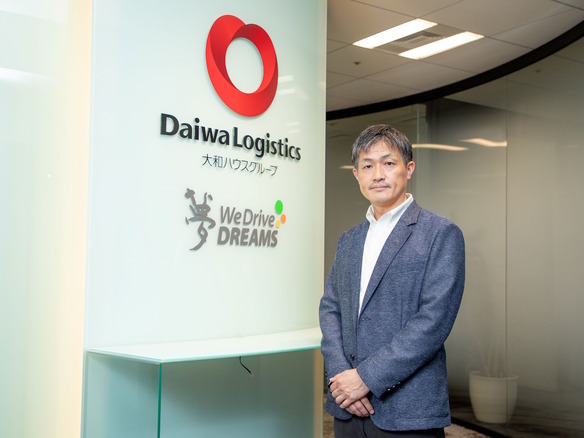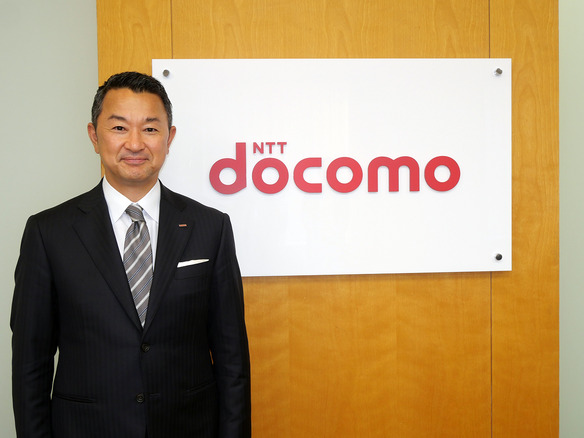Increase in ‘global nomads’ and high medical premiums create challenges for expatriate benefits
・Number of ‘global nomads’ increased by two-thirds since 2008/2009
・53% of companies have seen international medical plan premium increases of 6% or more
・85% of multinationals have procedures to monitor success of expatriate benefit policy
While the number of employees on international assignments has remained relatively stable over recent years, the percentage of “global nomads” (employees who move from country to country on multiple assignments) and long-term expatriates has increased, causing challenges for employers when it comes to providing expatriate benefits. Thus, provision of expatriate benefits remains a key priority for multinational companies – 85% of survey respondents have specific procedures in place to monitor the success of expatriate benefit programmes. Employers are eager to ensure that their expat benefits programmes not only support business and HR strategies but also meet their assignees’ needs.
Mercer’s 2011/2012 Benefits Survey for Expatriates and Internationally Mobile Employees provides an overview of expatriate policies within large multinational companies. It covers 288 multinational firms world-wide that, all together, have 119,000 expatriates (up from 94,000 in the 2008/2009 survey).
According to the report, the need to develop global leadership talent and the growth of new business ventures abroad has prompted a rise in global mobility. The number of global nomads has risen from 6% to 10% of the expatriate population of survey respondents, while the percentage of short-term expatriates (those assigned to a project for less than a year) has fallen from 17% to 11%. Long-term expatriates as a percentage of the total assignee population increased from 21% to 40% between the 2008/2009 and 2011/2012 surveys.
Mark Price, Principal in Mercer’s International Consulting Group, said: “Seasoned professionals who can bring solid international experience and a depth of knowledge across a number of operating environments are vital to companies looking to create or expand new ventures abroad and gain a competitive advantage. We are seeing that multinationals are expecting their talent pool to have varied geographical experience as a prerequisite to climbing the top rungs of the career ladder.”
Retirement policies
The most common retirement approach for all internationally mobile employees is to maintain cover in home country plans, based on the assumption that assignees are more likely to retire in their home countries. Some 63% of traditional and long-term expatriates are maintained in their home country retirement plans.
“The benefits of keeping expatriates in their home country retirement plan is alignment with employee expectation as they remain in a plan that is known prior to the assignment, and avoidance of benefit fragmentation as benefits continue to accrue under a single plan,” said Mr. Price. “However, while this is suitable for short-term and traditional assignees, problems can occur applying these plans to global nomads,” he continued. “Employers can run into problems when it is no longer possible, for a variety of reasons, to maintain assignees in the home country plan. In these circumstances, many employers look for alternative, more flexible solutions.”
One solution is to establish an international retirement plan, providing a single solution across assignments and the potential for a common scheme design. The survey results show that only 12% of companies have established international retirement plans to ensure continuity of benefits. Such plans, often offshore, are used across a variety of expatriate types. They are most common where there is no pension plan in a particular country or membership in a host country pension plan would adversely impact the employee. Offshore plans may not address all concerns, such as taxation or facilitating exclusion from host country pension arrangements, depending on the jurisdictions concerned, but do go some way to allowing for continued pension plan membership under a single arrangement whilst employees are on various assignments.
“Whilst 12% appears low,” said Mr Price, “it is indicative of the market and we’re actually seeing an increase in the use of such vehicles outside Asia Pacific. They are very effective in providing consistent cover for mobile populations and in jurisdictions where no appropriate plans exist.”
The most common reasons respondents gave for choosing not to implement an international retirement plan were “insufficient numbers of employees to justify the costs” (38%) and “a combination of home/host-country plan meets needs” (30%). But a significant number (17%) of respondents are unaware of the potential benefits of establishing an international retirement plan or have never considered this as an option.
Medical benefits
Nearly all respondents currently provide private medical insurance for their globally mobile workforce (98%) compared to only 57% in 2005. Medical benefits and the quality and standards of medical healthcare vary significantly from country to country, so the main challenge for companies is to provide expatriates with a broadly equitable system of healthcare whilst managing costs. Other factors that may be driving uptake of international medical plans include an increase in local health insurance compliance and also the increasing demand by employees for medical benefits to be in place prior to the commencement of the assignment.
Mr. Price commented: “An international medical plan provides equality among expatriates and reduces administration effort and time resource constraints. But challenges remain, particularly around costs. Fifty-three percent of respondents have experienced increases of 6% or more in their international medical plan premiums at their last renewal. Twenty percent of companies have seen their premium increases by between 11–15%.
“Complexity in administering multi-country plans can increase the cost of providing medical benefits. Furthermore, the ‘hot destinations’ for expatriates happen to be countries with some of the highest medical inflation in the world, such as the Middle East, India, China and Latin America. So it is not surprising that the global trend towards high premium increases is particularly prevalent in international medical plans,” he continued.
According to the survey, traditional cost-containment options remain popular, with a large proportion of respondents adopting the use of cost-sharing approaches such as employee deductibles (up 8% from 2008/2009), co-insurance and annual benefits limits.
--------------------------------------------------------------------------------
About mercer
Mercer is a global leader in human resource consulting and related services. The firm works with clients to solve their most complex human capital issues by designing and helping manage health, retirement and other benefits. Mercer’s 20,000 employees are based in more than 40 countries. Mercer is a wholly owned subsidiary of Marsh & McLennan Companies (NYSE: MMC), a global team of professional services companies offering clients advice and solutions in the areas of risk, strategy and human capital. With 53,000 employees worldwide and annual revenue exceeding $10 billion, Marsh & McLennan Companies is also the parent company of Marsh, a global leader in insurance broking and risk management; Guy Carpenter, a global leader in providing risk and reinsurance intermediary services; and Oliver Wyman, a global leader in management consulting. Follow Mercer on Twitter @MercerInsights
--------------------------------------------------------------------------------
マーサーについて
マーサー (英語社名:Mercer、本社: ニューヨーク、社長兼CEO:Julio A. Portalatin)は、世界40カ国以上、約180都市において、コンサルティング、アウトソーシング、インベストメント分野で25,000社以上のクライアントにサービスを提供するグローバル・コンサルティング・ファームです。世界各地に在籍する20,000名以上のスタッフがクライアントの皆様のパートナーとして多様な課題に取り組み、最適なソリューションを総合的に提供しています。
日本においては、30余年の豊富な実績とグローバルネットワークを活かし、あらゆる業種の企業・公共団体に対するサービス提供を行っています。組織変革、人事制度構築、福利厚生・退職給付制度構築、M&Aアドバイザリー・サービス、グローバル人材マネジメント基盤構築、給与データサービス、年金数理、年金資産運用など、「人・組織」を基盤とした幅広いコンサルティング・サービスを提供しています。
マーサーは、ニューヨーク、シカゴ、ロンドン証券取引所に上場している、マーシュ・アンド・マクレナン・カンパニーズ(証券コード: MMC)グループの一員です。
マーサーについての詳細は、以下をご参照ください
マーサー ジャパン リンク
Mercer(Global) リンク
マーシュ・アンド・マクレナン・カンパニーズについて
マーシュ・アンド・マクレナン・カンパニーズ (ニューヨーク証券取引所コード: MMC) は、グローバルプロフェッショナルサービスを提供する企業グループとして、顧客企業にリスク、戦略、人材分野の助言とソリューションを提供しています。マーシュ・アンド・マクレナン・カンパニーズはマーシュ(保険仲介とリスクマネジメント)、ガイカーペンター(再保険仲介・コンサルティング)、マーサー(組織・人事マネジメント・コンサルティング)、そしてオリバーワイマン(戦略コンサルティング)から構成されており、全世界に52,000名の従業員を擁し、100ヶ国以上で顧客に分析、アドバイスを行い、各種取引を支援しています。当グループは責任ある企業市民として事業展開しているコミュニティに貢献しています。詳しい企業情報については www.mmc.com、今日企業が直面する課題に取り組む当グループの国際的な実務能力とソリューションについては www.PartneringImpact.com をご覧ください。
* * *
本件に関するお問い合わせ
マーサー ジャパン株式会社
インフォメーション・プロダクト・ソリューションズ
グローバル・モビリティ
Tel: 03 5354 1483 Fax: 03 5333 8137
mobility.japan@mercer.com
リンク
広報 小原 香恋 Karen Ohara
Tel: 03-5354-1674 pr.japan@mercer.com
御社のプレスリリース・イベント情報を登録するには、ZDNet Japan企業情報センターサービスへのお申し込みをいただく必要がございます。詳しくは以下のページをご覧ください。
 メルカリが「2四半期連続のMAU減少」を恐れない理由--日本事業責任者が語る【インタビュー】
メルカリが「2四半期連続のMAU減少」を恐れない理由--日本事業責任者が語る【インタビュー】
 なぜPayPayは他のスマホ決済を圧倒できたのか--「やり方はADSLの時と同じ」とは
なぜPayPayは他のスマホ決済を圧倒できたのか--「やり方はADSLの時と同じ」とは
 AIが通訳するから英語学習は今後「オワコン」?--スピークバディCEOの見方は
AIが通訳するから英語学習は今後「オワコン」?--スピークバディCEOの見方は
 パラマウントベッド、100人の若手が浮き彫りにした課題からCVCが誕生
パラマウントベッド、100人の若手が浮き彫りにした課題からCVCが誕生
 野村不動産グループが浜松町に本社を「移転する前」に実施した「トライアルオフィス」とは
野村不動産グループが浜松町に本社を「移転する前」に実施した「トライアルオフィス」とは
 「ChatGPT Search」の衝撃--Chromeの検索窓がデフォルトで「ChatGPT」に
「ChatGPT Search」の衝撃--Chromeの検索窓がデフォルトで「ChatGPT」に
 「S.RIDE」が目指す「タクシーが捕まる世界」--タクシー配車のエスライド、ビジネス向け好調
「S.RIDE」が目指す「タクシーが捕まる世界」--タクシー配車のエスライド、ビジネス向け好調
 物流の現場でデータドリブンな文化を創る--「2024年問題」に向け、大和物流が挑む効率化とは
物流の現場でデータドリブンな文化を創る--「2024年問題」に向け、大和物流が挑む効率化とは
 「ビットコイン」に資産性はあるのか--積立サービスを始めたメルカリ、担当CEOに聞いた
「ビットコイン」に資産性はあるのか--積立サービスを始めたメルカリ、担当CEOに聞いた
 培養肉の課題は多大なコスト--うなぎ開発のForsea Foodsに聞く商品化までの道のり
培養肉の課題は多大なコスト--うなぎ開発のForsea Foodsに聞く商品化までの道のり
 過去の歴史から学ぶ持続可能な事業とは--陽と人と日本郵政グループ、農業と物流の課題解決へ
過去の歴史から学ぶ持続可能な事業とは--陽と人と日本郵政グループ、農業と物流の課題解決へ
 通信品質対策にHAPS、銀行にdポイント--6月就任のNTTドコモ新社長、前田氏に聞く
通信品質対策にHAPS、銀行にdポイント--6月就任のNTTドコモ新社長、前田氏に聞く
 「代理店でもコンサルでもない」I&COが企業の課題を解決する
「代理店でもコンサルでもない」I&COが企業の課題を解決する